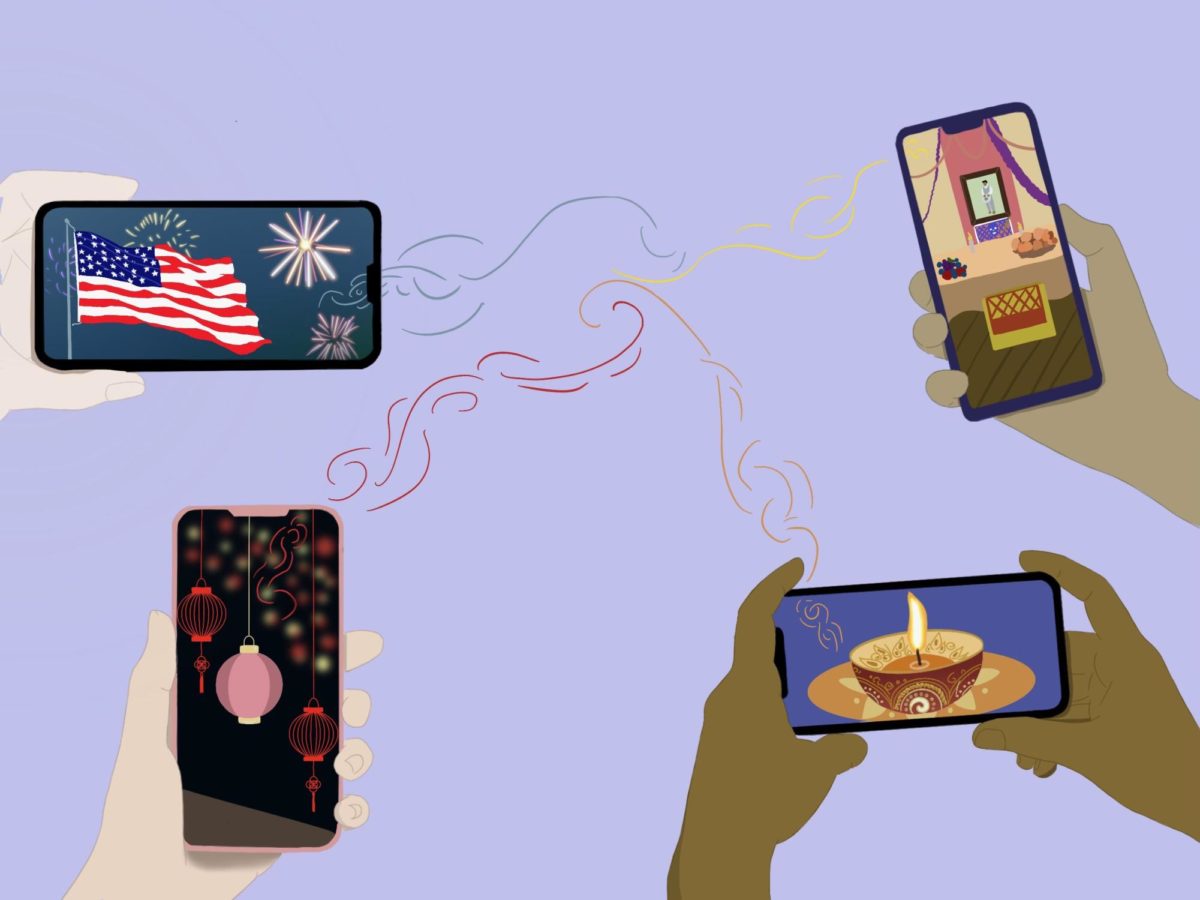Characters flit in and out of my computer screen, their stories blossoming in each frame that passes. I scroll up endlessly, engrossed in a show and wanting to know what happens next, and soon, I’ve finished an entire show while laying in bed. This is my guilty pleasure: absorbing clip after clip of a TV show on YouTube that I will never watch in its entirety. I find myself laughing and crying alongside these fictional personas, and although I can relate to the story intensely, I seem to always feel an equally tremendous amount of disconnect.
Growing up with the internet gave our generation access to a plethora of information and exposed us to the wider world. My parents ensured that I grew up learning the traditions of my culture and appreciating both the American and Chinese parts of myself, but I was acutely aware of being different from my classmates. While developing my own identity, I often turned to the stories on television that intimately portrayed the journey of the characters as a source of comfort and escape.
Media is able to act as a mirror for its consumers. On one hand, it’s unbelievably relieving to see myself being represented and understood in my unique experiences. One of the films I felt a connection with was “Turning Red,” which explored the complex relationships between a mother and daughter and the weight of parental expectations. Forming our own identities can be confusing and messy, but seeing our experiences reflected in a show or a movie that we enjoy can be a source of validation and joy.
The media we consume also serves as an educator. The world is a diverse place, and movies and television shows should strive to reflect the ways in which it is distinct. In the stages of adolescence where we are developing our own identities, it is imperative that we are exposed to a variety of people and perspectives that reflect both our personal experiences and those of others. As a result, we will be able to develop a worldly view that helps us better embrace and celebrate each of our differences.
Although the general media has recently taken strides to diversify films and television, such as the all-Asian cast of “Crazy Rich Asians,” there still is a distinction between using diversity to appease the audience and diversity for the representation of the community.
Television shows and movies tend to establish characters who are not white as side characters and very rarely main characters. Although on a technicality, the show is being diverse, it often feels disingenuous, as if diversity is just a checkbox to be ticked for the show. Not every show needs to have a person of color as its lead, but in some cases, the plot could benefit from having a character with a different direction of depth and experience.
Another side effect of this phenomenon is stereotyping. Stereotyping certain groups of people for the sake of humor is common in the media. Falsely portraying a group of people and generalizing them to fit certain characteristics is harmful, as stereotypes often reduce beautifully diverse groups of people into a single, condescending archetype. For someone whose only exposure to a certain identity is through a stereotype from a show, the person could develop harmful misconceptions and prejudices against people of that identity.
The constant portrayal of a character of a community in a certain way is demeaning especially for the people in the community. Personally, the stereotype of the socially awkward and nerdy East Asian character makes me feel patronized and uncomfortable. I found myself seeing the way that East Asians are portrayed in the media and felt ashamed and guilty for my ethnic background. I saw people who looked like me being depicted as “exotic,” outlandish and weak. They were sexualized and used as the brunt of the joke. I heard the accents of my immigrant parents exaggerated for comedic effect, and I wondered if that was what others thought of me and my family.
There’s no greater joy than to see a part of myself being represented in a show that I enjoy. It makes my experiences feel real and appreciated, and it’s validating to see other people simultaneously feel the same connection to a piece of media. Diverse representation is and will always be something that can be improved upon. Unfortunately, no magic formula exists to perfect diversity and craft a perfect representation of every experience. Practicing awareness and reflection is essential as we consider how to create media that is able to capture the diversity of our communities.
This story was originally published on Harker Aquila on August 25, 2023.




































